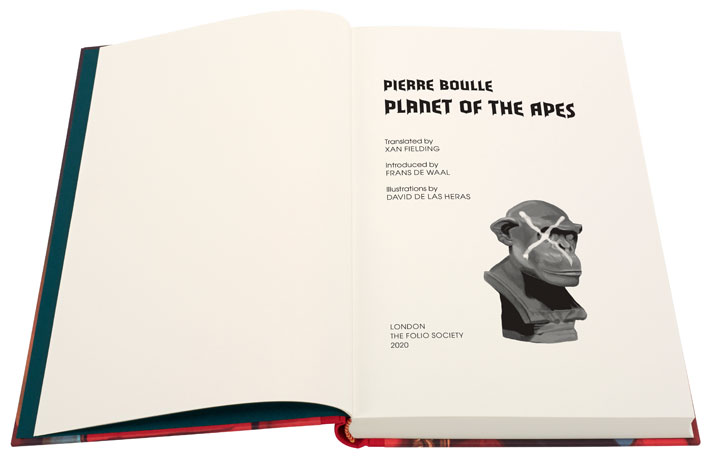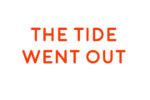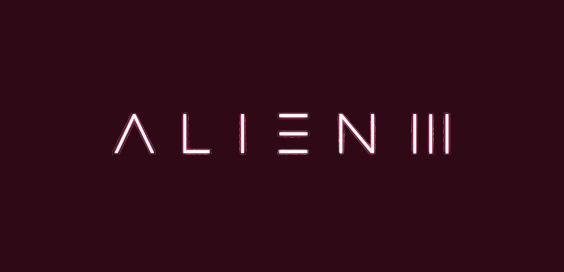Planet of the Apes by Pierre Boulle (Folio Society) – Review
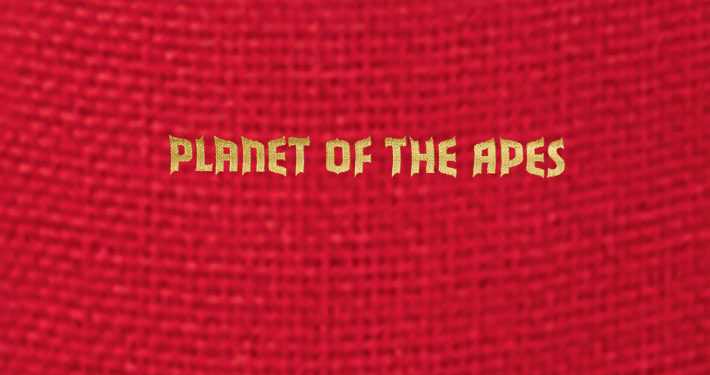
By James Robinson
Dystopian times call for dystopian literature, and since the ongoing lockdown is providing much more spare time for reading, right now is an excellent opportunity to revisit Pierre Boulle’s seminal 1964 novel Planet of the Apes, which is available in stunning boxed hardback edition from the Folio Society.
The mountain of film adaptations and TV episodes inspired by Boulle’s original work have, inevitably, eclipsed it in the popular imagination, so it might come as a surprise to new readers quite how different it is from the movies it inspired.
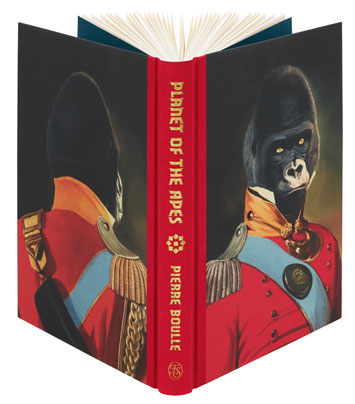 “Alternative conclusion is arguably no less haunting”
“Alternative conclusion is arguably no less haunting”
Although many of the same characters and plot developments do occur, the emphasis is much more on holding up a satirical mirror to modern mid-20th Century society. Most notably, these monkeys do not exist in the quasi-medieval landscape of the movies. instead they wear hats and suits, visit museums, uphold class distinctions and put a great amount of stock in science – with little regard for the comfort of ‘lesser creatures’ like poor humans.
The 1968 film’s iconic twist ending, too, involving a ruined Statue of Liberty, is absent – although the novel’s alternative conclusion is arguably no less haunting,
In fact, outside of a brief prologue and coda, Boulle, who was not specifically a sci-fi author, doesn’t place too much emphasis on the more futuristic and outré elements of the story. The human protagonist, Ulysse Mérou, describes himself as a journalist and a scientist, and reports his experiences in generally dispassionate terms.
The bulk of the story takes place in the monkey societies’ science labs, and most of the ‘action’ involves long conversations between the protagonist and his captors. It is likely much of the inspiration came from Boulle’s experiences as a POW during the Second World War, and worth noting that his other best-remembered work is Bridge Over the River Kwai. This emphasis on philosophical discussion can make the satirical thrust of the novel seem rather blunt, yet it is never less than entertaining.
“Striking”
As you would expect from the Folio Society, this new edition is a delightful object in its own right. Cloth bound and boxed, it features striking full-colour illustrations from David de las Heras. These are beautifully detailed and have a retro charm that perfectly captures the novel’s offbeat atmosphere, immersing the reader into a world even stranger than our own.
A new introduction from primatologist Frans de Waal also explores some of the themes Boulle wrestles with, as well as making a stout defence of orang-utans, which he assures the reader are nothing like how they are described in the novel – that is, ‘as stupid as a man’.
The Folio Society edition of Pierre Boulle’s Planet of the Apes, translated by Xan Fielding, introduced by Frans de Waal and illustrated by David de las Heras, is available exclusively from www.FolioSociety.com
